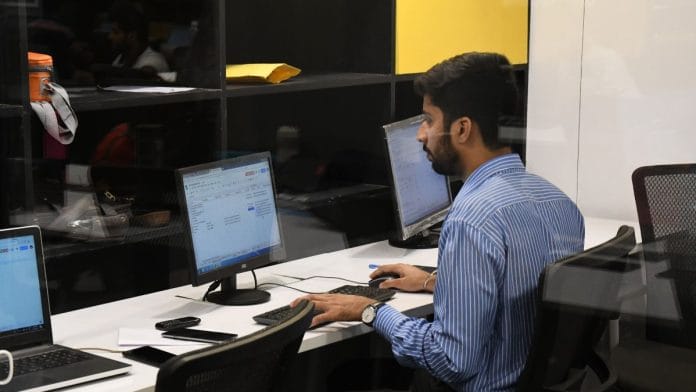In an age where profit often trumps employee well-being, long working hours have become an entrenched feature of many industries. Businesses continue to push the boundaries of productivity as the human cost is overlooked.
The narrative surrounding extended working hours frequently focuses on numbers: overtime pay, output per hour, or the bottom line. Yet, behind these figures are real individuals—workers who endure physical, mental, and emotional strain to meet their employer’s ever-increasing demands.
This discourse has recently become contentious in India, with businessmen such as NR Narayana Murthy and SN Subrahmanyan stirring the debate. Infosys co-founder Murthy sparked controversy by advocating for a 70-hour workweek to enable Indian professionals to compete globally. Subrahmanyan, chairman of Larsen & Toubro, escalated this notion by proposing an even more gruelling 90-hour workweek.
These statements have ignited widespread criticism, prompting a vital question: Can India’s economic aspirations justify compromising the well-being of its workforce?
The productivity conundrum
Supporters of longer workweeks argue that relentless dedication is crucial for India to remain competitive on the global stage. However, this perspective disregards a fundamental principle: productivity is not directly proportional to working hours. Research demonstrates that productivity peaks at a certain threshold before it begins to decline due to fatigue, cognitive strain, and burnout—a phenomenon represented by the inverted U curve of efficiency.
Overworking leads to diminishing returns as physical and mental exhaustion impairs an employee’s performance. Human beings are not machines—they need rest and mental recuperation to sustain peak efficiency.
Modern Indian workers, caught between economic pressures and personal needs, face an increasing challenge to maintain equilibrium. They want to learn a new skill, pick up a hobby, exercise, meditate, and spend time with their family. They don’t want to postpone the joys of life until after retirement.
It is also in a CEO’s interest to have a happy workforce instead of one trapped in a hamster wheel.
India’s low ranking in the 2023 World Happiness Report—126th out of 137 countries—underscores the detrimental impact of an imbalanced work culture. Meanwhile, countries like Finland, which consistently leads happiness indices, exemplify the benefits of a balanced lifestyle.
India’s path to economic growth need not rest on excessive working hours. National prosperity should be measured not by the hours clocked in, but by factors such as skill application, meaningful employment, and citizens’ happiness. Only by adopting a holistic approach can the nation achieve long-term growth.
Also read: CEOs want us to work weekends without overtime. Don’t we ask the same of our cooks, cleaners?
Overwork takes a toll
Long hours have become the norm for low-income and contractual workers. Driven by job insecurity and limited opportunities, they often feel compelled to accept exploitative working conditions. Gig workers, for instance, are disproportionately affected by the demand for increased output.
Another group facing undue burden are women workers, who often shoulder the larger share of domestic chores in addition to their professional responsibilities. Despite their contributions to the workforce, many women still face the dual pressure of societal expectations and work demands. Balancing the needs of the family, housework, and a full-time job leaves them with little personal time.
Excessive work schedules contribute to a host of health problems, including chronic fatigue, anxiety, depression, and even cardiovascular diseases. Tragic instances such as the suicide of an Ernst & Young employee—whose family cited work-related stress as a factor—highlight the severe psychological strain faced by overburdened workers.
Perhaps the most insidious outcome of prolonged working hours is the dehumanisation of workers. When employees are viewed solely as tools for generating profit, their sense of dignity and self-worth is affected. They feel undervalued, disengaged, and expendable.
The repercussions extend beyond individuals, affecting families and communities. Workers often sacrifice time with loved ones, leading to strained relationships within households. Children grow up with absent parents and partners struggle to maintain healthy relationships.
Work-related stress also erodes social ties and fosters isolation, compounding the negative effects on mental health. A society that prioritises a worker’s output over their well-being creates a disconnected and emotionally unfulfilled populace.
Also read: Mark Zuckerberg’s tryst with Trump, tampons, and truth
Toward a sustainable work culture
The prevailing culture of overwork is unsustainable. To address this, businesses and governments must implement initiatives such as capping working hours, offering flexible schedules, and ensuring adequate leave.
Governments play a critical role in enforcing labour laws that safeguard workers’ rights. Regulatory frameworks that promote work-life balance, mental health support, and fair compensation can pave the way for a more sustainable and humane economic model.
India’s future success depends not on the quantity of hours put in by its workforce but on the quality of its contributions. Embracing a balanced approach that values productivity alongside human dignity will foster a healthier, happier, and more innovative society.
I strongly advocate for a shift to a four-day workweek, which begins at midday on Monday and wraps up before midday on Friday. Introduced in France last year and under trial in several countries around the globe, the four-day model merits serious consideration as a step toward a more sustainable work culture.
The most successful societies of tomorrow will not be defined by relentless labour but by their commitment to mental health and human flourishing. Ultimately, the question is not just how much we work, but how well we live.
Karti P Chidambaram is a Member of Parliament for Sivaganga and a Member of the All India Congress Committee. He is also the Vice President of the Tamil Nadu Tennis Association. His X handle is @KartiPC. Views are personal.
(Edited by Prasanna Bachchhav)







Why not 3 days a week? Your papa has already given you enough that you don’t need to work at all!! And your party leader always stalls parliament and musft ki khata hai